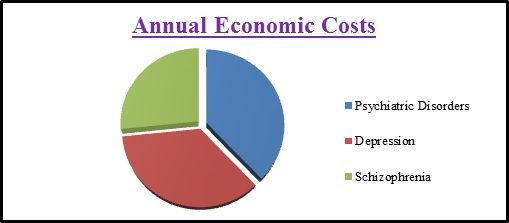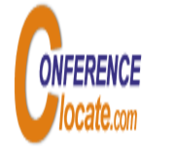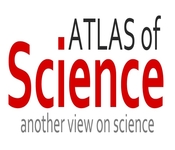Theme: Discoveries and Innovations towards Mental Health, Wellness and Healthcare
Psychiatry and Psychology 2019
- Psychiatry and Psychology 2019
- Session and Tracks
- Important Dates
- Participation Benefits
- Market Analysis
On behalf of Organizing Committee we invite all the participants from all part of the world to attend the Psychiatry and Psychology conference entitled 31st American Psychiatry, Psychology and Nursing Congress scheduled during March 18-19, 2019Chicago, Illinois, USA.
Psychiatry and Psychology 2019 is the leading meeting dedicated toPsychiatrists, Psychologists, Psychotherapists, Mental Health experts, Nursing professionals and Healthcare professionalswith the theme "A Tradition of Discovery and Innovation towards Mental Health, Wellness and Healthcare
Psychiatry and Psychology 2019 is an annual meeting of Psychiatrists, Psychologists, Mental Health professionals, Counselors, Therapists, Nursing practitioners, Neurologists, Psychotherapists and many more to discuss the future of the Psychiatry, Psychology, Nursing in terms of collaboration, structures and organizational development and various advances.
The main theme of the conference is "Discoveries and Innovations towards Mental Health, Wellness and Healthcare" which will ignite young minds in searching a novel approach towards the marvels of sustainable future.
The goal of Psychiatry and Psychology 2019 is to deliver an outstanding program for exchange of ideas and authoritative views by leading scientists which covers the entire spectrum of research and share the cross-cultural experiences of various treatment procedures.
Details of Psychiatry & Psychology Conferences in 2019 in USA:
| Conference Name | Place | Date |
| Psychiatry and Psychology 2019 | Chicago, Illinois, USA | March 18-19, 2019 |
Why to attend?
We strive to make Psychiatry and Psychology 2019 a great success, with your support and high quality talks from University and Colleges Academicians, Business and Industry professionals as well as Organisations, Social Workers, Hospitalists, Societies, Medical centers, Clinics and entire committees. During the conference, we assure you that you will experience world class facilities and hospitality at the conference.
31st American Psychiatry and Psychology Congress is a unique forum for Psychiatrists, Psychologists, Mental Health professionals, Nurse practitioners, Directors, Health Care and Medical Professionals, Nurses, Academicians, Early Career Scholars, business professionals and students. The Conference will feature many exciting academic programs including multiple panels, workshops, affinity group lunches, paper presentations, and scientific sessions by reputed psychiatrists and psychologists from all over the country.
Psychiatry 2019 Highlights includes:
CPD Credits by CPD Standards Office, UK
IOCM Certification
One on One Meeting with Eminent Speakers from 40 Countries
Live Streaming of the conference
Keynote sessions by world's most eminent researchers in the field of Psychiatry and Psychology
Top Industries Representation
Thought provoking Symposia's and Workshops
Preconference workshops in all major countries
Nominations for Best Poster Award
Outstanding Young Researcher Award
Group Registration benefits
Your attendance and participation will be greatly appreciated as we seek to strengthen the expertise in field of Psychiatry and Psychology!!
On behalf of the Organizing Committee, with great pleasure, we welcome you to the official website of the 31st American Psychiatry and Psychology Congress dated March 29-30, 2019 at Orlando, USA.
The time duration for each category
Keynote Speech: 40-45 minutes Oral Presentation: 25-30 minutes Workshop: 60 minutes
Session on: Psychiatry and Psychiatric Disorders
Psychiatry is the branch of medicine concentrated on the determination, treatment and prevention of mental, passionate and social issue. Psychiatry is the restorative claim to fame committed to the conclusion, counteractive action and treatment of mental disorders. These incorporate different maladaptations identified with inclination, conduct, discernment, and observations. Current psychiatry too carries with it new debates, for example, the medicalization of ordinary life, the energy of the medication and the utilization of psychiatry as a specialist of social control.
Session on: Psychology and Psychological Resilience
Psychology (Brain science) is the examination of mind that grips all parts of insightful and unmindful involvement with thought. It is an academic instruct associated science to understand individuals and social event them by working up general models for researching specific cases. In this field, a specialist expert or investigator is known as a therapist and can be named a social, behavioral, or subjective analyst. Experts attempt to grasp the piece of mental limits in individual and social direct, while moreover exploring the physiological and natural methodology that underlie mental limits and practices.
Session on: Nursing Education, Career and Practices
Nurse education consists of the theoretical and practical training provided to nurses with the purpose to prepare them for their duties as nursing care professionals. This education is provided to nursing students by experienced nurses and other medical professionals who have qualified or experienced for educational tasks. Most countries offer nurse education courses that can be relevant to general nursing or to specialized areas including mental health nursing, pediatric nursing and post-operatory nursing.
Session on: Mental Health and Wellbeing
Mental health (psychiatric or psychological) disorders involve disturbances in thinking, emotion, and behavior. Small disturbances in these aspects of life are common, but when such disturbances distress the person greatly and/or interfere with daily life, they are considered mental illness or a mental health disorder. The effects of mental illness may be temporary or long-lasting. These disorders are caused by complex interactions between physical, psychological, social, cultural, and hereditary influences. Psychiatric medications are mainly prescribed by a primary care physician. Anyway, the best treatment for a mental health concern is from a mental health professional: a psychiatrist, psychologist, clinical social specialist or psychotherapist. For some patients, a blend of psychotherapy and medication is typically demonstrated, the best technique for treatment.
Session on: Schizophrenia and Bipolar Disorders
Schizophrenia is a mental disorder that usually appears in late adolescence or early adulthood. Characterized by delusions, hallucinations, and other cognitive difficulties, schizophrenia can often be a lifelong struggle.
Bipolar disorder, also known as manic-depressive illness, is a brain disorder that causes unusual shifts in mood, energy, activity levels, and the ability to carry out day-to-day tasks.
Session on: Psychiatric and Mental Health Nursing
Psychiatric nursing or mental health nursing is the designated position of a nurse that represents considerable authority in emotional well-being, and thinks about individuals of any age encountering mental illnessesor trouble. These include: schizophrenia, schizoaffective disorder, mood disorders, anxiety disorders, personality disorders, eating disorders, suicidal thoughts, psychosis, paranoia, and self-harm. A psychological well-being medical attendant can be exceptionally fulfilling, yet this can be an unpleasant and sincerely depleting work also. Enlisted medical attendants can work in the psychological wellnessfield and they can likewise build their capabilities by undertaking a further review in this field.
Session on: Psychotherapy and Mindfulness
Psychotherapy is otherwise called talk treatment, a procedure of mental technique for treating emotional wellness issues by conversing with a specialist, analyst or other psychological well-being suppliers. It is an approach to treat individuals with a mental issue by helping them comprehend their sickness. It shows individuals techniques and gives them apparatuses to manage push and unfortunate considerations and practices. Mindfulness is the psychological process of bringing one's attention to experiences occurring in the present moment which one can develop through the practice of meditation and through other training
Session on: Stress, Depression and Anxiety
Anxiety is a feeling described by an upsetting condition of inward disturbance, frequently accompanied by nervous behavior like pacing back and forth, substantial objections, and rumination. Anxiety is the desire of future threat. Depression is a condition of low mood and antipathy for a movement that can influence any one’s thoughts, behavior, tendencies, emotions, and feeling of prosperity. Stress, a type of mental agony is a feeling of strain and pressure. Stress can build the danger of strokes, heart attacks, ulcers, and depression.
Session on: Post-traumatic stress disorder (PTSD)
Post-traumatic stress disorder (PTSD) is a mental health condition that's triggered by a terrifying event — either experiencing it or witnessing it. Symptoms may include flashbacks, nightmares and severe anxiety, as well as uncontrollable thoughts about the event.
Session on: Substance Abuse and Dual diagnosis
Substance abuse, also known as drug abuse, is a patterned use of a drug in which the user consumes the substance in amounts or with methods which are harmful to themselves or others, and is a form of substance-related disorder.
Dual diagnosis (also referred to as co-occurring disorders) is a term for when someone experiences a mental illness and a substance use disorder simultaneously. Either disorder—substance use or mental illness—can develop first. People experiencing a mental health condition may turn to alcohol or other drugs as a form of self-medication to improve the mental health symptoms they experience.
Session on: Addiction, Addictive Disorders and Recovery
Addiction is a type of brain disorder described by urgent commitment in rewarding stimuli despite adverse consequences, which emerges through the epigenetic and transcriptional mechanism and happens after some time from chronically high levels of exposure to an addictive boost. Examples of behavioral and drug addictions like alcoholism, cocaine addiction, nicotine addiction, opioid addiction, food addiction, gambling addiction, and sexual addiction.
Session on: Suicide Prevention and Self-harm
Suicide prevention is an umbrella term used for the collective efforts of local citizen organizations, health professionals and related professionals to reduce the incidence of suicide. Self-harm, also known as self-injury, is defined as the intentional, direct injuring of body tissue, done without suicidal intentions. Other terms such as cutting and self-mutilation have been used for any self-harming behavior regardless of suicidal intent. The most common form of self-harm is using a sharp object to cut one's skin. Other forms include behaviour such as burning, scratching, or hitting body parts
Session on: Child and Adolescent Psychiatry
Adolescent Psychiatry is primarily concerned with the study and treatment of behavioral disorders and emotional problems that affect children and they may include autism spectrum disorders, depression, anxiety, substance abuse, eating disorders, mental disorders, mental retardation, Feeding and Eating Disorder, Mood Disorder, bipolar disorder etc.
Session on: Counseling Psychology and Clinical Psychology
Counseling psychology is a psychological specialty that encompasses research and applied work in several broad domains: counseling process and outcome; supervision and training; career development and counseling; and prevention and health. Some unifying themes among counseling psychologists include a focus on assets and strengths, person–environment interactions, educational and career development, brief interactions, and a focus on intact personalities
Session on: Child Psychology and Developmental Psychology
Child psychology is a key part of developmental psychology and focuses on the psychological processes of children from prenatal development to adolescence. The scope of the study includes motor skills, cognitive development, mental health, language skills, social change and emotional development and some of the common mental disorders like Learning Disorder, Motor skill Disorder, Pervasive Developmental Disorder, Attention Deficit Developmental Disorder and Disruptive Behavior Disorder.
Developmental psychology is the scientific study of how and why human beings change over the course of their life. Originally concerned with infants and children, the field has expanded to include adolescence, adult development, aging, and the entire lifespan.
Session on: Industrial and Organizational Psychology
Industrial-organizational psychologists use psychological principles and research methods to solve problems in the workplace and improve the quality of life. They study workplace productivity and management and employee working styles. They get a feel for the morale and personality of a company or organization.
Session on: Primary Healthcare and Public Health
Healthcare is the support or help or change of prosperity through prevention, analysis, and treatment of illness, damage, disease, and different physical and mental weakness in people. Healthcare is conveyed by health experts (providers or practitioners) in unified prosperity fields. Doctors and doctor associates are a part of these prosperity specialists. Maternity care, audiology, dentistry, nursing, pharmaceutical, optometry, pharmacy, psychology, occupational therapy and other wellbeing callings are a part of medicinal services. It incorporates work is done in giving essential care, secondary care, and tertiary care, and additionally in general wellbeing.
Session on: Yoga, Meditation and Anger Management
Yoga is a gathering of physical, mental, and otherworldly practices or trains which began in ancient India. Meditation can be characterized as training where an individual uses a technique, for example, concentrating their mind on a specific protest, thought or action, to achieve a mentally clear and candidly quiet state. Meditation may be used with the aim of reducing stress, anxiety, depression, and pain, and increasing peace, perception and wellbeing.
Session on: Sleep Disorder and Medicine
Sleep disorder or somnipathy is a therapeutic issue related to sleep patterns of any individual. A couple of disarranges are not kidding enough to meddle with mental, physical, social and passionate working. Polysomnography and actigraphy are tests commonly requested for some rest issue. Sleep Medicine is presently a perceived subspecialty inside inward drug, otolaryngology, family medicine, psychiatry and neurology, pediatrics in the United States.
Session on: Obsessive Compulsive Disorder (OCD)
Obsessive-Compulsive Disorder (OCD) is a common, chronic and long-lasting disorder in which a person has uncontrollable, reoccurring thoughts (obsessions) and behaviors (compulsions) that he or she feels the urge to repeat over and over.
Session on: Attention deficit hyperactivity disorder (ADHD)
Attention-deficit/hyperactivity disorder (ADHD) is a brain disorder marked by an ongoing pattern of inattention and/or hyperactivity-impulsivity that interferes with functioning or development.
- Inattention means a person wanders off task, lacks persistence, has difficulty sustaining focus, and is disorganized; and these problems are not due to defiance or lack of comprehension.
- Hyperactivity means a person seems to move about constantly, including in situations in which it is not appropriate; or excessively fidgets, taps, or talks.
- Impulsivity means a person makes hasty actions that occur in the moment without first thinking about them and that may have high potential for harm; or a desire for immediate rewards or inability to delay gratification.
Session on: Autism or Autism spectrum disorder
Autism spectrum disorder (ASD) is a developmental disorder that affects communication and behavior. Although autism can be diagnosed at any age, it is said to be a “developmental disorder” because symptoms generally appear in the first two years of life.
Session on: Nutrition, Obesity and Eating Disorders
Eating Disorders describe illnesses that are characterized by irregular eating habits and severe distress or concern about body weight or shape. Eating disturbances may include inadequate or excessive food intake which can ultimately damage an individual’s well-being. The most common forms of eating disorders include Anorexia Nervosa, Bulimia Nervosa, and Binge Eating Disorder and affect both females and males. Obesity is a medical condition in which excess body fat has accumulated to the extent that it may have an adverse effect on health.
Session on: Bullying and Violence
Bullying is a form of aggressive behavior in which someone intentionally and repeatedly causes another person injury or discomfort. Bullying can take the form of physical contact, words or more subtle actions. Violence is defined by the World Health Organization as "the intentional use of physical force or power, threatened or actual, against oneself, another person, or against a group or community, which either results in or has a high likelihood of resulting in injury, death, psychological harm, mal development, or deprivation,"
Session on: Psychosis and Psychometrics
Psychosis is characterized by an impaired relationship with reality. It’s a symptom of serious mental disorders. People who are experiencing psychosis may have either hallucinations or delusions.
Psychometrics is a field of study concerned with the theory and technique of psychological measurement. As defined by the National Council on Measurement in Education, psychometrics refers to psychological measurement. Generally, it refers to the field in psychology and education that is devoted to testing, measurement, assessment, and related activities.
Session on: Neuropsychiatry and Neuropsychology
Neuropsychology is the investigation of the structure and function of the brain as they identify with particular mental procedures and practices. It is one of the experimental fields of psychology that aims to understand how expects to see how conduct and insight are impacted by mind working and is associated with the determination and treatment of social and intellectual impacts of neurological issue.
Session on: Neurology and Cognitive Neuroscience
Cognitive neuroscience or psychological neuroscience is the field concerned with the study of various biological processes and aspects that underlie perception with a particular focus on the neural associations in the brain that are involved in mental processes.
Session on: Psychopharmacology and Pharmaceuticals
Psychopharmacology is the logical investigation of the impacts drugs have on mood, sensation, considering, and conduct. The field of psychopharmacology contemplates an extensive variety of substances with different sorts of psychoactive properties, concentrating essentially on the concoction communications with the brain. The medicine industry (pharmaceutical industry) is the industry that finds, creates, delivers, and markets medications or pharmaceutical medications for use as various kinds of medicine and medications. Pharmaceutical organizations may bargain in generic or brand medications and devices. They are liable to an assortment of laws and controls that oversee the patenting, testing, wellbeing, efficacy and marketing of drugs.
Session on: Palliative Care and Hospice
Palliative care is specialized medical care for people with serious illness. This type of care is focused on providing relief from the symptoms and stress of a serious illness. The goal is to improve quality of life for both the patient and the family.
Hospice care is a type of care and philosophy of care that focuses on the palliation of a chronically ill, terminally ill or seriously ill patient's pain and symptoms, and attending to their emotional and spiritual needs
Session on: Research work and Case studies on Psychiatry and Psychology
Psychiatric case reports contain data from and about the patient. The case report is to mirror that the individual who composed it knows about psychiatric specialized terms in portraying the side effects, the status and in delineating the ailment. Case report exhibit that the analyst has essential data's to express side effects agreeing on the examination of the patient, can make differential analysis between discrete diseases and can set up a restorative arrangement. Data from other medicinal records or those picked up by the inspector himself ought to be isolated for the situation report.
Session on: Networking and Entrepreneurs Investment Meet
Entrepreneurs from any field can exhibit and can give a presentation on their products which should be helpful in business development and marketing. Psychiatry meetings are used as a platform to connect Entrepreneurs, Proposers and the Investors worldwide. It is intended to create and facilitate the most optimized and viable meeting place for engaging people in global business discussions, evaluation and execution of promising business ideas. For entrepreneurs, this would be an ideal place to find out suitable investors and partners to start and/or expand their business. Thus it is a perfect place to connect Entrepreneurs, Business Owners, Early Stage Companies and Established Corporates with National or International Investors, Corporate Investors and Potential Business Partners.
Psychiatry conference is focused on helping entrepreneurs find the right co-founders, advisors, experts and interns to build lasting relationships and accelerate the new business formation and also helps entrepreneurs with the right business advisors. Knowledge is power and experience goes a long way. Whether you are an investor seeking to build your portfolio with potentially high-return investment opportunities or an entrepreneur seeking capital or resources to help build your team, the Psychiatry Conference will help.
1st round of abstract submission: November 25, 2018
2nd round of abstract submission: January 18, 2019
3rd/ Final round of abstract submission: March 10, 2019
Avail group participation discounts on more than 5 participants
The time duration for each category:
Keynote Speech: 40-45 minutes
Oral/ Plenary Speech: 25-30 minutes
Workshop: 60 minutes
Special Session: 45-50 minutes
- All accepted abstracts will be published in the respective International supporting Journals
- Each abstract will receive a (DOI) Number provided by Cross Ref
- All attendees will receive individual certification
- Special privileges on group registrations
- Networking with Experts in the Field
- Live Streaming of your presentation through our websites and YouTube
- Best Poster Competitions and Young Researcher Competitions among students all over the world
- The Career Guidance Workshops to the Graduates, Doctorates and Post-Doctoral Fellows
- Chance of B2B meeting
- Opportunity to organize Workshop/Symposia
- Opportunity to collaborate with our event
- Avail the opportunity to organize pre-conference workshop
- Individual momentos will be given to the Organizing Committee Members
- Appreciation momentos will be awarded to the Moderators
- Opportunity to interact with eminent personalities from all around the globe
- Handbook and conference kit
- 60% discount on manuscript publication
Psychiatry, the branch of medicine deals with diagnosis, treatment and prevention of various psychological disorders whereas Psychology deals with the academic discipline including conscious and unconscious phenomena. Importance found in cases like: panic attack, thoughts of suicide, frightening hallucinations, feelings of sadness, hopelessness, or anxiousness that never seem to lift or problems functioning, causing everyday life to feel distorted or out of control. Studies’ moving as mind is just as important to treat as any other part of the body.
Orlando (The City Beautiful) is the center of the Orlando metropolitan area which is 24th largest metropolitan area and 73rd largest city in the United States. Orlando is the Capital of the World tourist attractions for that the city is one of the leading tourism destinations in the world and events that drew more than 68 million visitors. The city is also one of the busiest American cities for conferences and conventions. Orlando is home to the University of Central Florida, which is the largest university campus in the United States in terms of enrollment as of 2015. English language is preferred by 75% population.
A revolution is under way in Psychiatry. The science underpinning this discipline has in the past shifted from psychology to pharmacology, and now it is changing again. Now Researchers are starting to build it on genomics and neuroscience based on advances in DNA sequencing and functional imaging. The next decade should see all of these strands intertwined into a more holistic approach. People are beginning to recognize that depression and schizophrenia, for example, are brain disorders related to physiological changes rather than simply behavioral ones.
Psychological science has experienced an unprecedented period of growth and advancement by a large mountain of data about treatments that are the most effective at addressing psychological issues ranging from depression to post-traumatic stress disorder during the last 25 years. Psychiatrists and Psychologists crossed disciplinary and geographic boundaries to mark a trend towards a global, integrative approach to psychological research. During these periods neuroscience has expanded into a variety of areas, with psychological researchers playing a significant role in that evolution from educational psychology, cognitive neuroscience, educational technology, and other disciplines.
High prevalence of mental and emotional disorders (Rising stress condition, physical, emotional, mental pressure, anxiety disorder and chronic diseases) globally will drive the market of psychiatric therapies. WHO stated that approximately 350 million populations suffering from depression and mental disorders and nearly 24 million populations globally affected by schizophrenia. Thus, rising incidences of psychological diseases will eventually increase the demand of psychiatric therapies and hence stimulates the market growth. According to Canadian Psychological Association (CPA), psychological treatment and therapies are very effective for the treatment of generalized anxiety disorder. According to a survey conducted by CPA in 2012, approximately 77% of patient population receive psychotherapy are benefited or remained generalized anxiety disorder free after treatment. Thus, high benefits of psychiatry therapies to cure variety of disorders will drive the market growth.
Estimated annual economic costs of psychiatry disorders, depression, and schizophrenia are $47 billion, $44 billion, and $33 billion per year approximately. The goal of this session is to understand the market value and growth of psychiatric drugs, current economics, cost of clinical trials, research and development. Persons associated with this field are mainly psychiatrists, psychologists, mental health professionals, social workers, counselors, and psychiatric nurses. Expenses of antipsychotic specialists utilized by Medicare recipients matured 65 years or more established have demonstrated the most noteworthy rate of increment at 71% every year.

Geographically, North America dominates the global psychiatry therapies market. The growth is mainly attributed to high incidence of schizophrenia and depression among the patient population. Europe is considered as the second largest region for psychiatry therapies market. India, South East Asia and China are emerging markets for psychiatry therapies because of changing lifestyle coupled with increasing psychological disease awareness among people.
The aim of 31st American Psychiatry and Psychology Congress is to present the latest research results, trends, concerns and advancements in the field of Psychiatry and Psychology with the economic and regional development by leading academic scientists, researchers and research scholars throughout the world along with practical challenges encountered and solutions adopted in this field. The prospective use of scientific methods is to promote the cooperation between the academics, researchers and scientists.
Conference Highlights
- Psychiatry and Psychiatric Disorders
- Psychology and Psychological Resilience
- Mental Health and Wellbeing
- Primary Healthcare and Public Health
- Psychotherapy and Mindfulness
- Psychiatric and Mental Health Nursing
- Stress, Depression and Anxiety
- Addiction, Addictive Disorders and Recovery
- Yoga, Meditation and Anger Management
- Pharmaceuticals and Psychopharmacology
- Sleep Disorder and Medicine
- Neurology and Cognitive Neuroscience
- Research work and Case studies on Psychiatry & Psychology
- Networking and Entrepreneurs Investment Meet
- Nursing Education, Career and Practices
- Schizophrenia and Bipolar Disorders
- Post-traumatic Stress Disorder (PTSD)
- Substance Abuse and Dual diagnosis
- Self-harm and Suicide Prevention
- Child and Adolescent Psychiatry
- Child Psychology and Developmental Psychology
- Counseling Psychology and Clinical Psychology
- Industrial and Organizational Psychology
- Attention Deficit Hyperactivity Disorder (ADHD)
- Autism or Autism Spectrum Disorder
- Obsessive Compulsive Disorder (OCD)
- Nutrition, Obesity and Eating Disorders
- Psychosis and Psychometrics
- Neuropsychiatry and Neuropsychology
- Bullying and Violence
- Palliative Care and Hospice
To share your views and research, please click here to register for the Conference.
To Collaborate Scientific Professionals around the World
| Conference Date | March 18-19, 2019 | ||
| Sponsors & Exhibitors |
|
||
| Speaker Opportunity Closed | Day 1 | ||
| Poster Opportunity Closed | Click Here to View | ||
Useful Links
Special Issues
All accepted abstracts will be published in respective Our International Journals.
Abstracts will be provided with Digital Object Identifier by


















